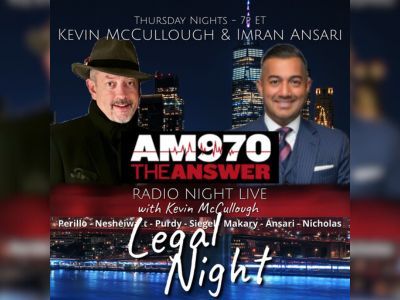Disputed charter school funding measure gets a pivotal hearing before the Kentucky Supreme Court
News > National News

Audio By Carbonatix
4:52 PM on Thursday, September 11
By BRUCE SCHREINER
School choice resurfaced Thursday as a hotly debated issue in Kentucky, where the state's highest court heard arguments in a bitter dispute over the constitutionality of a measure to publicly fund charter schools.
The measure, known as House Bill 9, was enacted by the state's GOP-dominated legislature in 2022 over Democratic Gov. Andy Beshear's veto. It would funnel taxpayer dollars to support charter schools. It was struck down by a lower court judge, setting up the climactic review by the Kentucky Supreme Court.
The outcome could decide whether charter schools gain a foothold in the Bluegrass State.
Supporters say charter schools offer another choice for parents looking for the best educational fit for their children. A goal, they say, is to close student achievement gaps. Opponents say such schools would divert needed funds from existing public schools and could pick and choose which students to accept.
Charter schools are operated by independent groups with fewer regulations than most public schools. They have been legal in Kentucky since 2017, but none have opened because of the lack of a method to fund them. The disputed law enacted a few years later was meant to fill that funding gap and mandated the opening of charter schools on a pilot basis in Louisville and northern Kentucky.
Kentucky is among a handful of states where charter school's don't operate.
“So Kentucky kids are really on the outside looking in, on what has been a resounding success — especially in urban areas,” state Solicitor General Matt Kuhn said in defending the disputed law during the hearing in Danville, Kentucky.
Byron Leet, one of two attorneys presenting for education groups opposed to the measure, countered that "there is nothing remotely resembling a consensus that charter schools are a wonderful thing.”
Arguments focused on whether charter schools meet the constitutional standards of public schools.
Charter schools would have to comply with student attendance standards, hire certified teachers, meet state standards for student performance and adhere to open records and open meetings laws, Kuhn said.
“I think that House Bill 9 fits neatly in our tradition" of public schools, he said.
Leet responded that charter schools would be “autonomous in matters of finance, personnel, curriculum and instruction — four very significant areas for any school."
"They are on an island by themselves as far as how they will operate," he added.
The Supreme Court justices weighed in with a series of questions for attorneys on both sides. Some questions drilled down into matters of accountability and oversight for charter schools.
An underlying test for public schools, based on decades of legal precedents, is whether they are controlled by elected officials within a school district, Leet said. Charter schools, meanwhile, would be operated by independent boards whose members would not be elected by local voters, he said.
Kuhn noted that, in most instances, the local school board would serve as the authorizing body for a proposed charter school in the district, resulting in significant local control.
He said it would be up to parents to decide whether to send their children to a charter school.
“Their kids only go there if they choose," he said. "And our submission would be that’s the best form of accountability — given that we presume that parents know best for their kids.”
Hanging over the case was a proposed constitutional amendment that would have allowed state lawmakers to appropriate tax dollars for educational opportunities outside the public school system. That ballot measure was overwhelmingly defeated by statewide voters in the 2024 general election.
“Should that impact our decision, or should we just ignore the nearly two-thirds of the voters who do not wish to have taxpayer funds used in this manner?” Justice Pamela R. Goodwine asked.
That outcome doesn't apply to charter schools because they wouldn't be outside the public school system, attorneys defending the charter school law said.
The justices did not indicate how soon they will rule on the matter.
Two of the state's top leaders weighed after the court hearing.
Beshear, the state's two-term governor who is widely seen as a potential contender for the White House in 2028, said the way to improve student performance is to increase state education funding and to look at giving existing public schools the type of regulatory flexibility envisioned for charter schools.
“The answer can't be to divert just some small group of students to some different system,” Beshear said at a news conference in Frankfort, the state's capital. “The answer has to be one that lifts everyone up, and that is better investing in our public school system.”
Republican Attorney General Russell Coleman, whose office is defending the charter school funding law, said Kentucky parents deserve the same options as those in states where charter schools operate.
"Kentucky’s kids deserve every chance to succeed, and we’re proud to stand alongside our partners in the General Assembly to fight for that opportunity,” he said in a statement.










